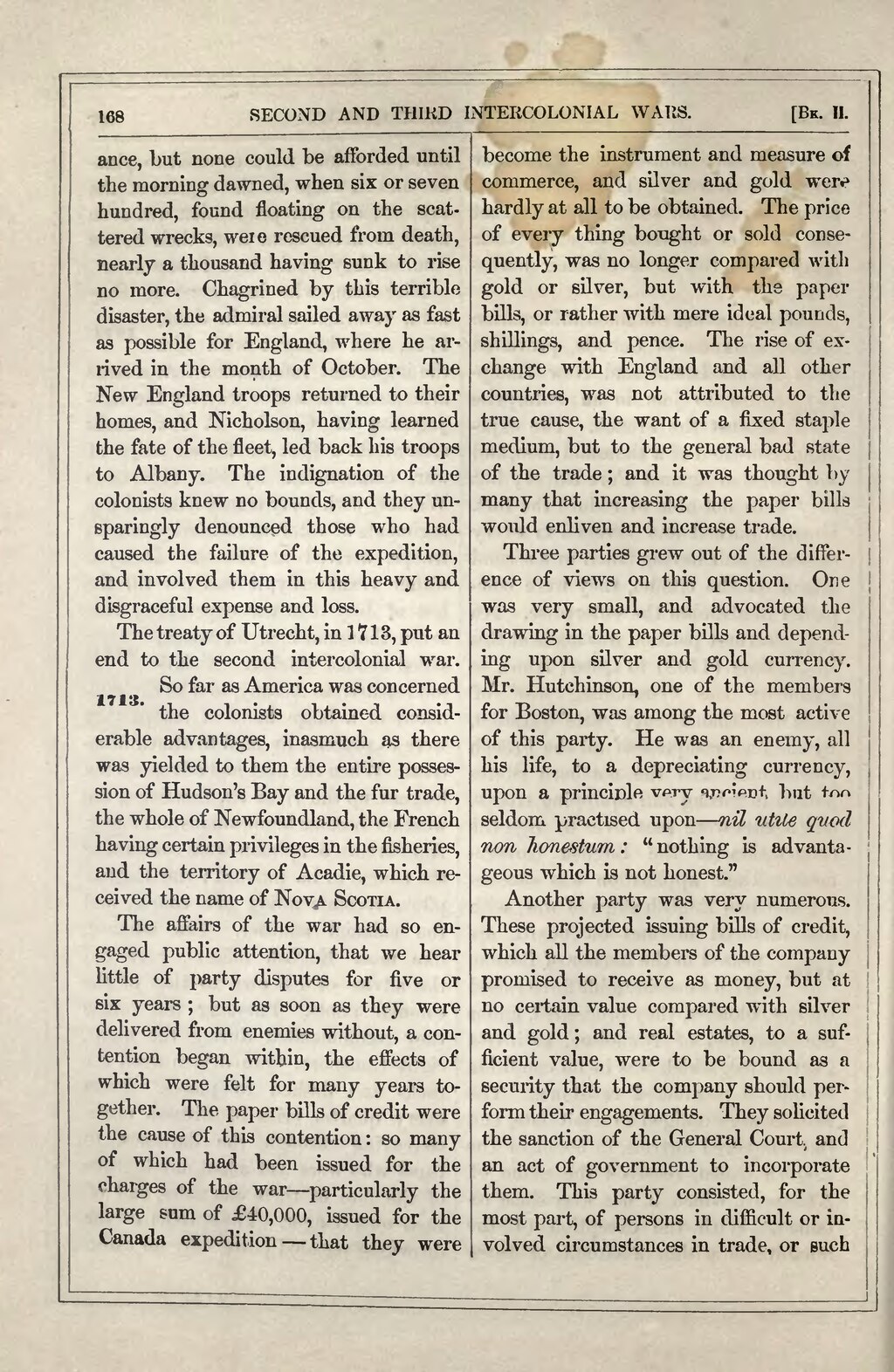ance, but none could be afforded until the morning dawned, when six or seven hundred, found floating on the scattered wrecks, were rescued from death, nearly a thousand having sunk to rise no more. Chagrined by this terrible disaster, the admiral sailed away as fast as possible for England, where he arrived in the month of October. The New England troops returned to their homes, and Nicholson, having learned the fate of the fleet, led back his troops to Albany. The indignation of the colonists knew no bounds, and they unsparingly denounced those who had caused the failure of the expedition, and involved them in this heavy and disgraceful expense and loss.
The treaty of Utrecht, in 1713, put an end to the second intercolonial war. So far as America was concerned the colonists obtained considerable advantages, inasmuch as there was yielded to them the entire possession of Hudson's Bay and the fur trade, the whole of Newfoundland, the French having certain privileges in the fisheries, and the territory of Acadie, which received the name of Nova Scotia.
The affairs of the war had so engaged public attention, that we hear little of party disputes for five or six years; but as soon as they were delivered from enemies without, a contention began within, the effects of which were felt for many years together. The paper bills of credit were the cause of this contention: so many of which had been issued for the charges of the war—particularly the large sum of £40,000, issued for the Canada expedition—that they were become the instrument and measure of commerce, and silver and gold were hardly at all to be obtained. The price of every thing bought or sold consequently, was no longer compared with gold or silver, but with the paper bills, or rather with mere ideal pounds, shillings, and pence. The rise of exchange with England and all other countries, was not attributed to the true cause, the want of a fixed staple medium, but to the general bad state of the trade; and it was thought by many that increasing the paper bills would enliven and increase trade.
Three parties grew out of the difference of views on this question. One was very small, and advocated the drawing in the paper bills and depending upon silver and gold currency. Mr. Hutchinson, one of the members for Boston, was among the most active of this party. He was an enemy, all his life, to a depreciating currency, upon a principle very ancient but too seldom practised upon—nil utue quod non homestum: "nothing is advantageous which is not honest."
Another party was very numerous. These projected issuing bills of credit, which all the members of the company promised to receive as money, but at no certain value compared with silver and gold; and real estates, to a sufficient value, were to be bound as a security that the company should perform their engagements. They solicited the sanction of the General Court, and an act of government to incorporate them. This party consisted, for the most part, of persons in difficult or involved circumstances in trade, or such
